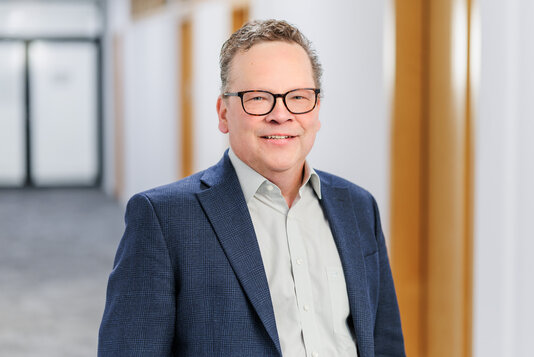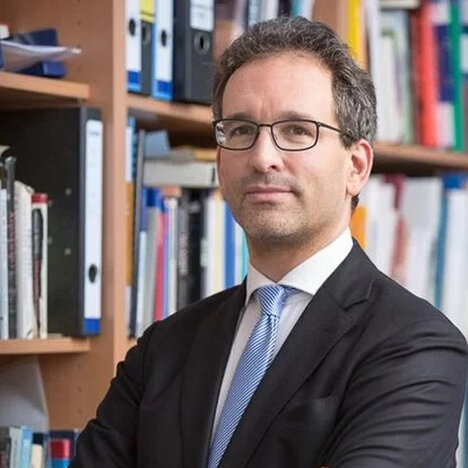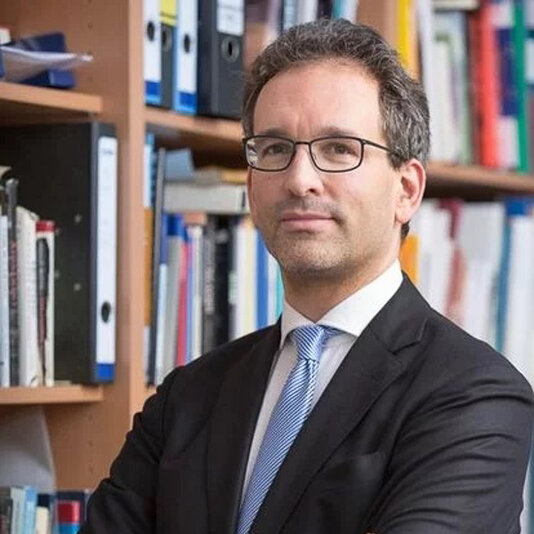
Does "memory culture" promote a healthy democracy? Can the USA – and other countries – learn from Germany’s decades-long experience of "working off" the Nazi past? This conference takes a comparative perspective on the practices of commemorating historical injustice in Germany, the USA and beyond.
 ©
CC BY NC SA 4.0 International / Wikimedia
©
CC BY NC SA 4.0 International / Wikimedia
Any study of memory cultures must include, but also look beyond, production and public display to consider more finely grained matters of meaning and reception. German and US memory cultures, though asymmetrical and distinct, are firmly bound by politics, history and decades of cultural exchange. By juxtaposing different practices of commemorating historical injustice in Germany and the USA we stand to learn significantly more about each than by studying them in isolation.
The strong connection between a flourishing memory culture and a healthy democracy gives this conference added urgency. The sweeping suppression of grants and programmes that promote diversity, equity and inclusion (DEI) by the Trump administration; the “antisemitic humiliation of Zelensky” (Timothy Snyder) in the now infamous Oval Office meeting; the systematic removal in US “red states” of books and curricula that treat slavery and racism; not to mention the eradication and displacement of native peoples – all this points to the way in which the fate of “memory culture” is closely tied to that of democracy.
This mixed-genre conference assembles scholars, journalists, and other professionals engaged in the work of “memory culture”, giving space to a variety of perspectives: of those working in the field as advocates and policy makers, of commentators (synthesising and reflecting on broader trends), and of those conducting academic research.
The keynote speaker, historian Andrew I. Port, exemplifies concrete new directions in reflecting upon the manner in which “Vergangenheitsaufarbeitung” (which he defines broadly to include memory of the German “Vertriebene”) has consistently inflected German foreign policy during the post-war and post-Wende periods.
The conference is organised by William Collins Donahue, Professor of European Studies at the University of Notre Dame (USA) and currently a Senior Fellow at the College, and by Jens Martin Gurr, Professor of British and Anglophone Literature and Culture at the University of Duisburg-Essen. It is open to interested members of UA Ruhr universities.
German Vergangenheitsbewältigung Before and After October 7: Reflections on Never Again: Germans and Genocide after the Holocaust | Professor Andrew I. Port, Wayne State University (USA)

Prof. William Donahue
University of Notre Dame (USA) | Film, Television and Theatre; German Studies; European Studies
William Donahue is Professor of European studies, Cavanaugh Professor of the Humanities and Professor of German at the University of Notre Dame (USA). A scholar of contemporary German literature and film, Donahue is a concurrent professor of film, television, and theatre. His research interests include contemporary European Studies (migration, refugees, European Union, populism), German literature and film, Holocaust Studies, German Jewish Studies, and art as a form of protest, social engagement and community building. He is the author of Holocaust as Fiction: Bernhard Schlink’s "Nazi" Novels and Their Films and The End of Modernism: Elias Canetti’s Auto-da-Fé.
William Donahue has served as chair of the University of Notre Dame’s Department of German and Russian Languages and Literatures. He is co-director of the Notre Dame Berlin Seminar, which brings American scholars of German literary and cultural studies together with experts and leading figures of Germany’s literary scene. He holds a PhD in German Literature from Harvard.
William Donahue has been a visiting scholar at the University of Duisburg-Essen several times and co-editor of andererseits: Yearbook of Transatlantic German Studies together with Georg Mein and Rolf Parr.
Website
 ©
© Daniel Schumann
©
© Daniel Schumann
Prof. Dr. Jens Martin Gurr
University of Duisburg-Essen | British and Anglophone Literature and Culture
E-mail: jens.gurr@uni-due.de
 ©
© Daniel Schumann
©
© Daniel Schumann
Prof. Jens Martin Gurr
University of Duisburg-Essen | British and Anglophone Literature and Culture
E-mail: jens.gurr@uni-due.de
Jens Martin Gurr has been Professor of British and Anglophone Literature and Culture at the University of Duisburg-Essen, Germany, since 2007. Research interests include 17th-21st-century English literature, contemporary Anglophone fiction, as well as literary and cultural theory. Thematically, he works on public functions of narrative, conflict narratives, climate change fiction and climate change communication, theory of models, literary urban studies, urban cultural studies, transatlantic comparative memory research, theories and methods of inter- and transdisciplinary research, and functions of literature and of literary studies in pluralist societies. He is the author or co-author of six monographs, including Charting Literary Urban Studies: Texts as Models of and for the City (Routledge, 2021), and (with Julia Hoydis and Roman Bartosch) Climate Change Literacy (Cambridge University Press [Elements series], 2023). His most recent book, Understanding Public Debates: What Literary Studies Can Do came out with Routledge in June 2024. He is currently completing a monograph provisionally entitled Enlightenment Controversies: The Literary Self-Enlightenment of the Enlightenment, 1720-1800. Jens Gurr is a member of the UDE University Council and of the Board of Trustees of the Volkswagen Foundation. In research, teaching and administration, a consistent concern has been to define and strengthen the role of the humanities in academia and in society generally.
Website